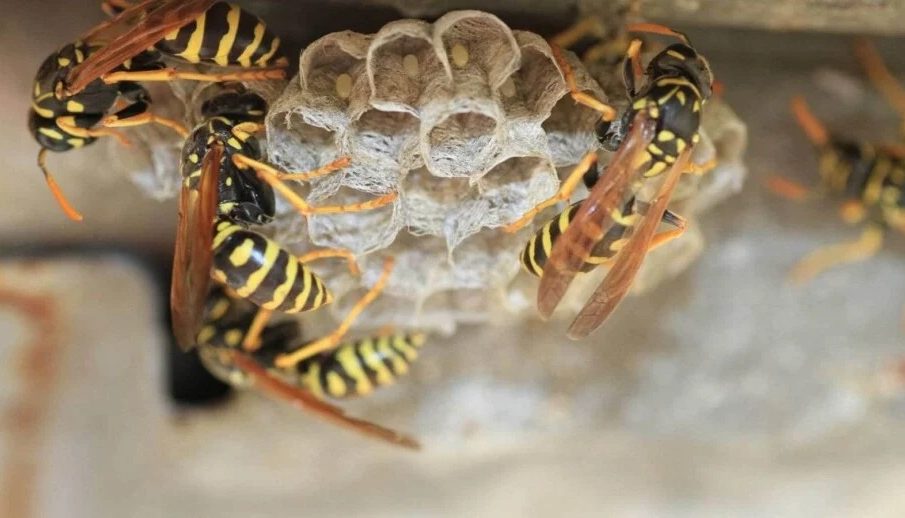Understanding Wasp Behavior: Why They Build Nests Near Homes and How to Keep Them Away

Wasps are active and social insects. They live in organized colonies with clear roles. A queen starts a small nest in early summer. Worker wasps soon join her and help expand it. The insects look for secure and dry places. Many nests appear under roofs or near windows. Wasps choose human homes because food is close. Sweet fruits and drinks attract them easily. Light and warmth also support their growth. Human activity unknowingly invites them. Understanding their simple needs helps prevent trouble. Knowledge about their behavior protects homes from invasion.
Why Wasps Build Nests Near Homes
Wasps select nesting areas with safety. They need shelter from heavy rain. Wooden beams or wall gaps give comfort. The insects also search for steady warmth. Homes often offer both space and security. Wasps see hidden corners as ideal grounds. They use chewed wood fibers to build nests. The material becomes a strong paper shell. It protects eggs and larvae from harm. Queen wasps guide the colony with care. When colonies grow large homes face risk. Early awareness can stop infestation from spreading. Safe distance ensures peace for households.
Food Sources and Attraction
Food is the main reason wasps stay near homes. Sweet smells draw them instantly. Open garbage offers a large feast. Fallen fruits make easy meals. Even pet food attracts hungry insects. Outdoor cooking can increase visitor numbers. Wasps search for sugar and protein daily. They feed larvae with soft insects. Adults feed on nectar or fruit juice. Clean surroundings can cut their food supply. Covered bins and sealed containers help greatly. The insects then search for new habitats. Simple habits can reduce nesting possibilities. Neat outdoor spaces keep homes safe longer.
Safe Ways to Keep Wasps Away
Prevention is safer than reaction. People must check for small nests early. Small nests can be removed carefully. Natural scents can drive wasps away. Peppermint oil or vinegar can confuse them. Bright lights at night must stay off. Darkness discourages repeated visits. Holes in walls must be sealed promptly. Garden areas need regular cleaning sessions. Removing fallen fruits limits food access. Homeowners who fear stings should seek help. Experts know the safest approach for wasp nest removal. Correct timing ensures better results for everyone. Calm handling prevents harm to insects and humans.
Maintaining Long Term Protection
Long term safety needs awareness daily. Each season can bring new colonies. Regular checks protect roofs and walls. Open spaces must stay clean always. Gardens need trimming to avoid shadows. Vent holes must stay covered properly. A dry and tidy home reduces risks. Natural repellents can support the effort. Understanding wasp behavior builds confidence. Awareness changes fear into smart action. Preventive care saves both time and stress. Early steps stop nests before they rise. A peaceful home remains wasp free longer. Balanced measures create harmony with nature.














